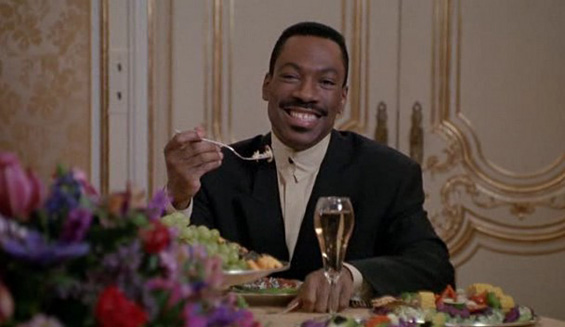In 1992, as Eddie Murphy was riding the wave of his success, he took the liberty to create the ideal we know as Boomerang. Murphy portrayed Marcus Graham; the film’s lead character who’s a high-power advertising executive who happens to be a womanizer. It’s generally considered one of Murphy’s best films of the 90’s, well as a classic.

Fast-forward 27 years later (2019) and BET has created a series based on the film using the same title. Sadly, the showrunner decided not to chronicle the life of a black male, but chose to follow the life of Marcus and Angela’s “daughter” Simone. It was then I realized America doesn’t want the black man’s stories being seen, heard, or told on television.
For decades, television has found ways to take a glimpse into the black man’s life, without fully diving into the black man’s prism. A fraction of the black man’s story is only told because black men only exist in an ensemble cast. The black man continues to be the love interest sprinkled over a few episodes. If not, he’s the bad guy, or the gay male who’s represents an accessory to the female lead. Why is television so afraid to showcase the everyday professional black guy? In 2004, UPN aired a sitcom starring Taye Diggs [Kevin Hill] as a lawyer who’s balancing his professional and love life, while having custody for his 10-month-old cousin. That kind of representation needs broadcasting on television, but the network pulled the plug after the first season despite critical acclaim.
The black male father figure has always been represented well in television. From James Evan, to Heathcliff Huxtable, to Carl Winslow, to Uncle Phil, to Dre Johnson. America gets it right when it comes to the black father. However, in 2019 the everyday professional black male still doesn’t exist. Sure, we have Donald Glover in Atlanta, and Omari Hardwick in Power, but their characters don’t represent the bulk of black men. HBO’s Insecure got it right with the character Lawrence. Yes, the show stars two leading women, but Lawrence doesn’t play second fiddle to them. Lawrence has an arc, that has more than one episode each season surrounding his plight. Lawrence is the closest thing black men have on TV that not only represents them well, but showcases an authentic story.

Black men are hungry for the content and have a desire to see themselves on television as equal. It’s peculiar that there isn’t any entertainment platform discussing the issues surrounding black men. Surprisingly, Netflix hasn’t jumped on board with an original show. We’re aware that our image won’t always be represented well, but the lack of good representation is what’s bothersome. Huey P. Newton once said, “I don’t expect white media to create positive black male images.” I guess we shouldn’t either because there’s a slew of black male writers who are capable of creating relatable representation for TV. It’s just sad that white media thinks the black man’s story isn’t worth anything outside of strife and struggle. Real stories that represent the black man’s gaze is what’s missing. Yes, America is threatened and doesn’t wish to see the black man lead on television, but they only believe that because they speculate that there isn’t an audience for a black male lead.




